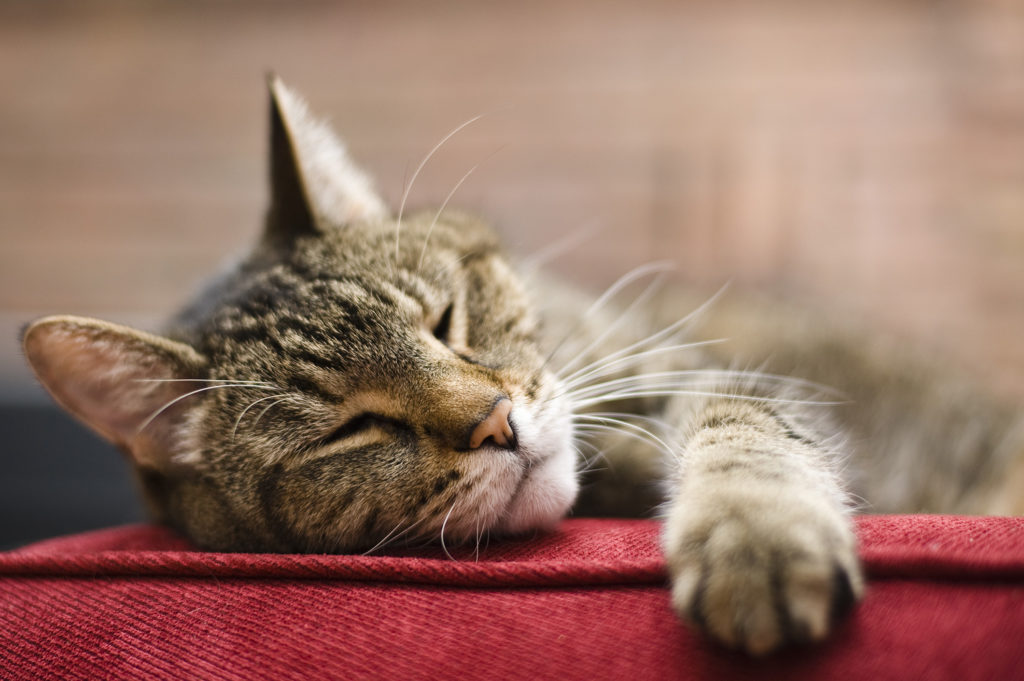Cats of all ages are notorious for sleeping, and senior cats are no exception. Life expectancy for cats is gradually growing longer; a cat isn’t considered a “senior citizen” until they are 12 to 14 years old.
Just like when they were kittens, older cats tend to sleep as much as 20 hours a day.
If your senior cat’s sleep patterns are starting to change, look first to their home environment, before getting concerned.
- Especially as they age, cats need warm and comfortable places to sleep. Extreme temperatures (hot or cold) can make your beloved Fluffy sick.
- Light is important, as many older cats have difficulty seeing well — especially at night. Leaving a light on or installing a nightlight is important.
- Encourage a bit of daily exercise. Improved muscle tone will make sleeping more comfortable.
- A senior cat may prefer to sleep on a soft surface. If your cat has always slept on the same hard surface, consider adding a soft bed to the area.
Changes in sleep behavior may be easy to eliminate through simple adjustments at home. But some behaviors in your cat could point to a larger problem and benefit from a discussion with your vet.
When To Talk To A Vet
- Your cat is howling more than usual, especially at night.
- You notice a lot of wandering or the appearance of confusion, especially at night.
- Your pet is acting more irritable or agitated in general.
- There are any signs of pain or discomfort.
The Bottom Line
A seemingly lazy cat is usually a natural part of the aging process. Doing all you can to ensure Fluffy feels safe, comfortable, and happy will go a long way toward making their twilight years golden.

